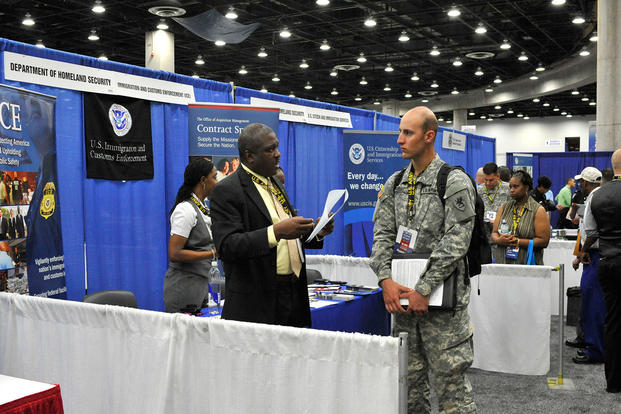Credentialing is a smart way to increase your chances of landing a civilian job without having to repeat coursework that's equivalent to your military training. Whether you're an active-duty service member or a veteran, it's time to familiarize yourself with the credentialing process.
"A credential will qualify your military training, and you need a credential to go to work," said James Hubbard, special projects manager at the Veterans' Employment and Training Service at the U.S. Department of Labor.
Hubbard, who served in the Army for six years during the Vietnam War, has devoted his career to working on behalf of veterans, focusing on vets' employment issues. "Out of more than 200,000 military personnel who separate from the services each year, about 38% will need a credential," he predicted.
The two primary types of credentials are:
- A license, issued by a political entity such as the local, state or federal government, allows an individual to practice a specified occupation.
- A certificate, issued by private organizations that maintain skill-set standards, documents an individual's capabilities.
Credentialing covers a broad range of enlisted jobs. For example, a license is needed to operate a commercial vehicle or to work in a nuclear power plant's control room. Computer technology giants such as Microsoft, Novell and Cisco Systems offer vendor-specific, information technology (IT) certification. Health-care jobs, such as radiology technician and dental assistant, require certification, and licensed practical nurses must meet state licensure requirements. Aircraft maintenance and repair occupations, like an aircraft body repairer or flight engineer, require federal certification.
A Typical Credentialing Scenario
You've spent four years on active duty and have been trained as a medical technician. To work as a medical technician after you leave the service will involve getting a license from the state where you work.
To obtain a license, you must meet certain criteria, which differs from state to state. Depending on where you're located, you may have to take more coursework. You may have to get a degree if you don't have one, and you may have to get a certificate from American Medical Technologists, the association that sets basic practicing standards for medical technicians.
That certificate may qualify you to take the test for the state license. Keep in mind that depending on when your military training took place, you may need to engage in some additional coursework to receive a credential.
To transition your military skills into a civilian career:
- Identify whether you need credentials.
- Determine where and how you can earn them.
- Plan how you will complete the credentialing process.
"The process can appear complex," Hubbard said. "There are 53 states and territories with more than 3,000 organizations issuing credentials, and the procedure is different for each state and each of the 105 military transferable occupations."
Since requirements vary by state, Hubbard advises checking with the state licensing board to find out more about specific requirements and obtaining the proper application form. In some cases, federal licensing is required.
Related: Unleash your career potential and get customized job recommendations based on your military experience and personality traits.
Help's on the Web
To learn more about how to meet specific credentialing requirements, Hubbard suggests visiting the Army's Credentialing Opportunities On-Line site.
"You can click on an occupational specialty code, which will direct you to that occupation, instruct you on what else you need to do to get a certificate and locate where you can get it," Hubbard said.
"Most people have been through a credentialing process. Most Americans have a driver's license. Transitioning out of the military and earning a credential is a similar process. You have to learn a skill and then take a test before you can practice your skill."
The Next Step: Find the Right Job
Whether you want to polish up your resume, find veteran job fairs in your area, or connect with employers looking to hire veterans, Military.com can help. Sign up for a free Military.com membership to have job postings, guides and advice, and more delivered directly to your inbox.











